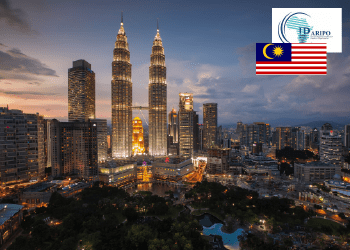Malaysia and ARIPO update their legislation and fees

On December 27, 2019, the Intellectual Property Corporation of Malaysia (MyIPO) published the new Trademark Act and Trademark Regulations aligning Malaysian trademark law with the Madrid Protocol the country had acceded to on September 27, 2019. The new Trademark Act not only introduces provisions necessary for the Madrid Protocol to enter into force in Malaysia but replaces the previous Trademark Act of 1976. Furthermore, the fee structure has been revised to comply with the new legislation.
The African Regional Intellectual Property Organisation (ARIPO) has also taken steps to enhance its trademark protection system, making significant amendments to the Harare and Banjul Protocols. These changes entered into effect as of January 1, 2020.
The Banjul Protocol was established in 1993 and currently comprises 10 member states, namely Botswana, Lesotho, Liberia, Malawi, Namibia, Sào Tomé and Príncipe, Swaziland, Uganda, United Republic of Tanzania and Zimbabwe. The protocol aims to harmonise the trademark protection system for contracting parties, allowing applicants to protect their brand in multiple countries which are party to the protocol by filing single application.
While amendments to the Protocol itself are mostly formal, the changes to the Implementing Regulations of the Banjul Protocol include new rules regarding the filing date, payment of fees and opposition procedures. As such, the filing date will constitute the date on which the application was received by the ARIPO Office or the Office of a Contracting State, provided that the application on the face of it contains the request for registration, name and address of the applicant, designation of at least one Contracting State, four copies of the trademark image and list of goods and services. Should an application not meet the requirements, the filing date is recorded as the day on which it is amended to fulfil them. Additionally, fees must be paid in USD (for non-nationals of the ARIPO countries) directly to the ARIPO Office either upon filing or within 21 days following. Further, a new provision regarding oppositions has been added to the Implementing Regulations detailing the opposition procedure previously described solely in the text of the Protocol.
The Harare Protocol on Patents and Industrial Designs was first adopted on December 10, 1982 and currently has 18 Contracting States: Botswana, Eswatini, the Gambia, Ghana, Kenya, Lesotho, Liberia, Malawi, Mozambique, Namibia, Rwanda, Sào Tomé and Príncipe, Sierra Leone, Sudan, Tanzania, Uganda, Zambia and Zimbabwe.
The text of the Harare Protocol has been changed to include new provisions regarding the publication of patent and utility model applications as well as accelerated examination of utility models. In addition, the Implementing Regulations now capture in the legislation procedures applied in practice alongside the introduction of the brand-new provisions.
One of the newly introduced rules sets the time limit of six months for an industrial design to be registered, published and a copy of the registration certificate transmitted to each of the designated states. As per the amendments, it will now be possible not only to reduce the number of states designated in the application at any time but also to add more states at any time before the publication of the application. Each of the requests should be accompanied by payment of the corresponding fee. The Fee Schedule has been amended to reflect the changes, and the Examination Report Fee and the Search Report Fee at USD 300 each have been combined into the Request for Substantive Examination Fee now constituting USD 600. The two have been combined to avoid confusion by the applicants, who used to pay only one of the fees while both are obligatory. In addition, the fee (not obligatory) has been introduced for users to request a prior art search for their own reference.
It is hoped that the amendments to the Banjul and Harare Protocols will contribute to the modernisation and further cooperation of ARIPO countries in the field of intellectual property.